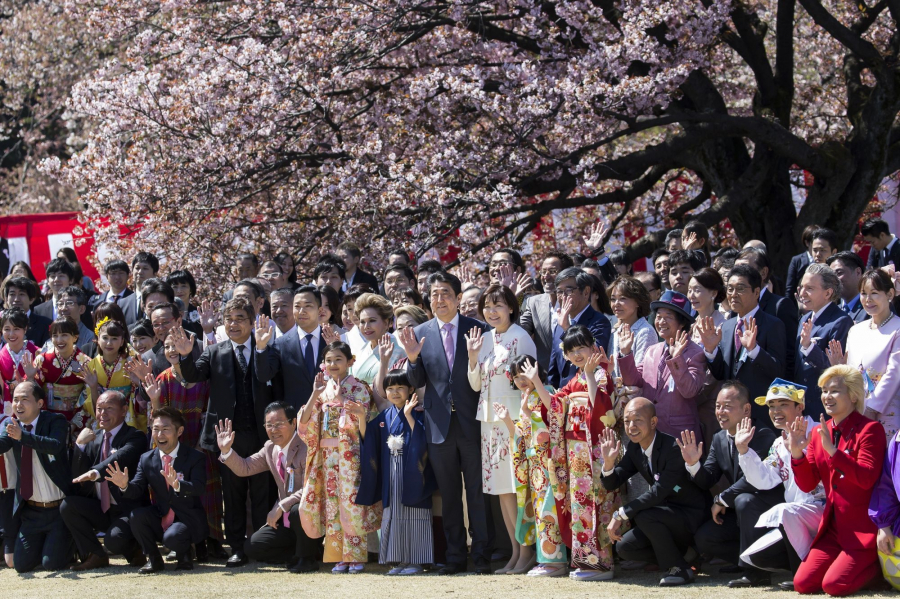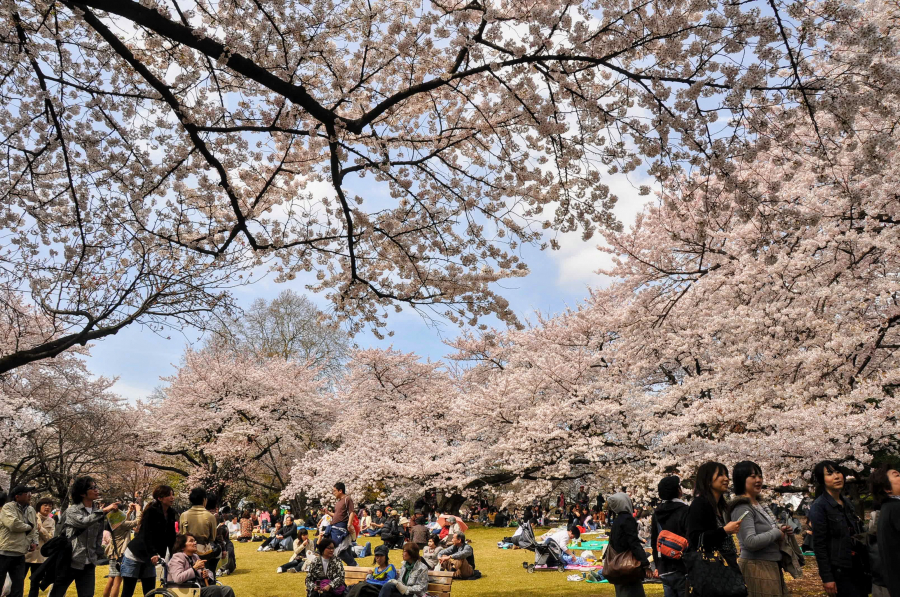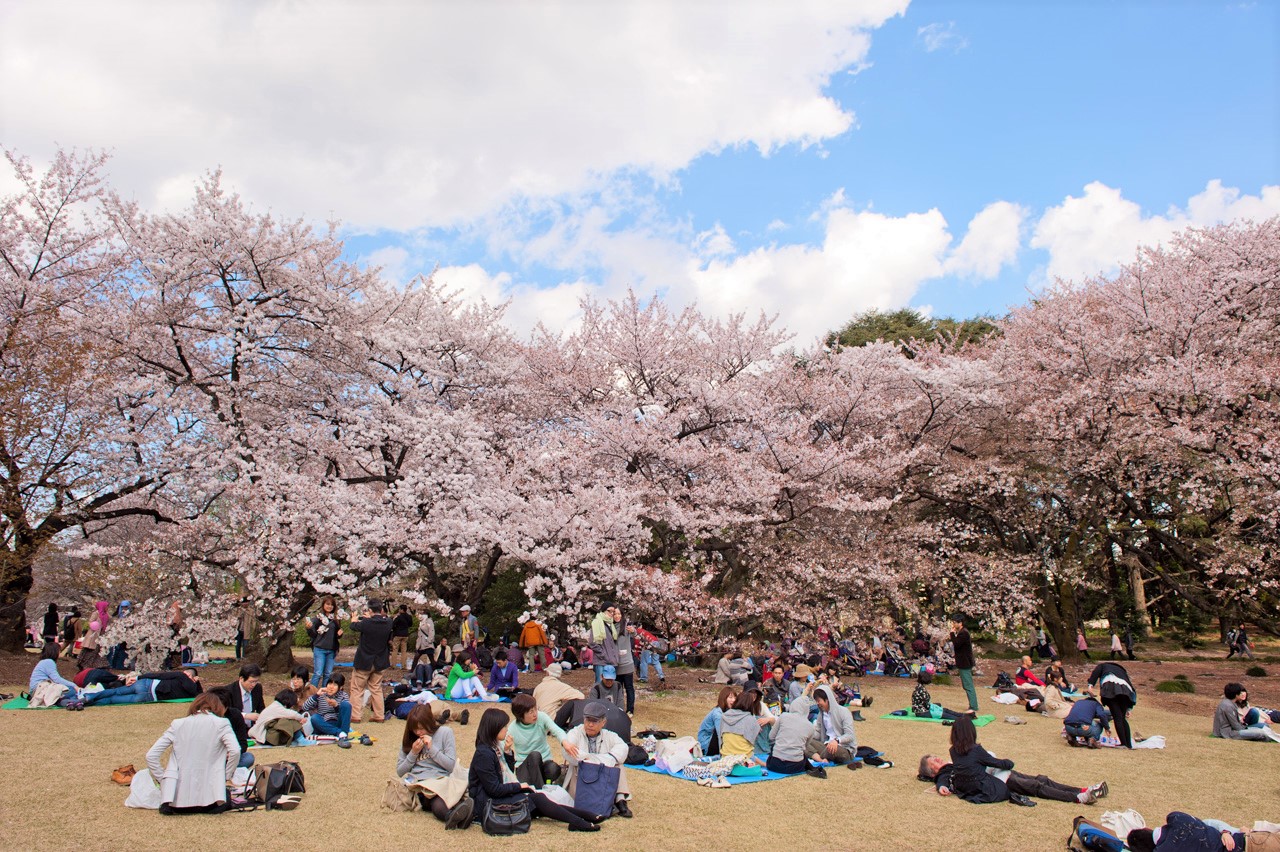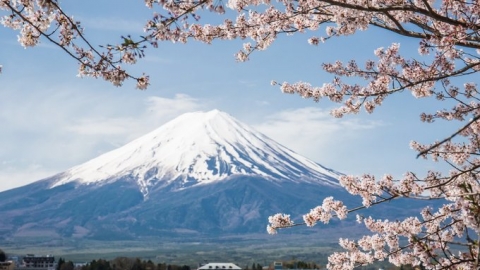Shinzo Abe's decision to cancel the 2020 Cherry Blossom Festival came after criticism that the cost of holding the event had skyrocketed unreasonably and was being misused for political purposes. "I made the decision to postpone the event myself," Abe told reporters at the Prime Minister's Office.
Held annually since 1952, this spring event was originally intended to honor athletes, celebrities, and distinguished citizens in various fields. However, critics argue that the festival is increasingly being exploited for political purposes.

The Japanese Prime Minister poses for a photo with guests at the Cherry Blossom Festival.
Japan's Asahi Shimbun news outlet also reported that voters in Yamaguchi Prefecture—Abe's constituency—were offered travel packages to Tokyo to enjoy river cruises during the festival weekend.
The projected budget for this event in 2020 is 57 million Yen (equivalent to over 12 billion VND), double the cost since 2014. The government stated that they considered the guest criteria and the scale of the event, and confirmed that the highest cost was allocated to counter-terrorism measures.
However, after opposition parties announced they would form a task force to investigate whether the use of public funds for private purposes violated election laws, Abe announced the cancellation of the 2020 Cherry Blossom Festival.

The cherry blossom festival at Shinjuku Gyoen National Park (Tokyo) in April 2019 welcomed over 18,000 attendees, an increase of 4,500 compared to five years earlier.
The Japanese cherry blossom festival, also known as Hanami, has long been known worldwide. It is considered a symbol of renewal, vitality, and beauty. Every spring, thousands of people travel to Japan to witness the magical spectacle of these pink blossoms in full bloom. With over 1,300 cherry trees planted in a traditional Japanese garden, Shinjuku Gyoen National Garden in central Tokyo is always an ideal spot to admire the breathtaking beauty of the cherry blossoms in Japan.

 VI
VI EN
EN


















.jpg.jpg)





.jpg.jpg)







